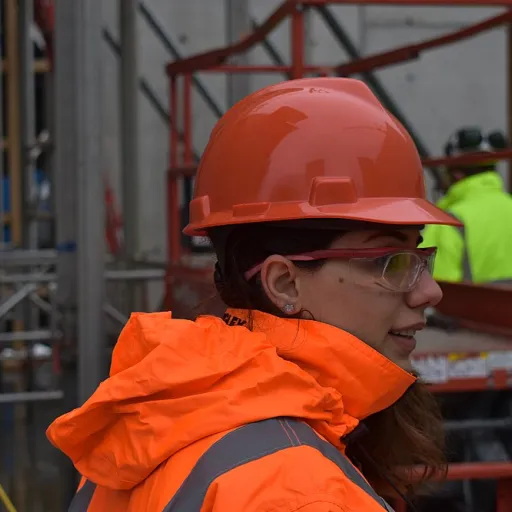
Understanding the essentials of candidate management software in recruitment
Candidate management software has become a cornerstone in the recruitment process for organizations seeking to attract and hire top talent efficiently. This software centralizes candidate data, enabling seamless management and tracking of applicants throughout the hiring journey. By integrating with job boards and social media, candidate management systems extend the reach of job postings, making it easier to source candidates from diverse backgrounds. The software automates repetitive tasks such as resume parsing, interview scheduling, and candidate communication, which significantly reduces time spent on administrative duties. As a result, recruiters can focus more on strategic aspects of talent acquisition and less on manual processes.
Modern candidate management platforms offer robust analytics and reporting tools, providing insights into every stage of the recruitment process. These features help organizations evaluate the effectiveness of their recruiting strategies and make data-driven hiring decisions. Applicant tracking capabilities ensure that no candidate is overlooked, and every application is processed efficiently. The integration of management systems with existing tech stacks further streamlines hiring, allowing for real time updates and collaboration among recruitment teams. By leveraging candidate management software, companies can enhance the overall candidate experience, ensuring timely communication and a transparent recruitment process.
For organizations aiming to improve their hiring process, understanding the full potential of candidate management systems is crucial. These platforms not only support recruitment software needs but also contribute to a positive candidate experience by reducing bottlenecks and improving engagement.
Key features and benefits of candidate management systems
Candidate management systems are designed to streamline hiring by automating and optimizing every step of the recruitment process. One of the most valuable features is applicant tracking, which allows recruiters to monitor candidates’ progress from initial application to final hire. This tracking system ensures that no candidate is lost in the process, and every applicant receives appropriate attention. Management systems often include tools for interview scheduling, making it easier to coordinate with both candidates and hiring managers. Automated communication features keep candidates informed, enhancing their experience and reducing uncertainty during the hiring process.
Another significant benefit is the ability to reduce time to hire. By automating resume screening and candidate matching, candidate management software accelerates the recruitment process and helps organizations secure top talent before competitors. Integration with other recruiting platforms and job boards expands the pool of potential candidates, improving the quality of hires. The software’s analytics capabilities provide real time insights into recruitment metrics, enabling better management decisions and continuous improvement of the hiring process. For those interested in optimizing their recruitment process, reviewing the most effective recruiting platforms can provide valuable guidance.
Candidate management systems also support compliance with data privacy regulations, ensuring that candidate information is handled securely and ethically. This builds trust with candidates and protects organizations from legal risks. By offering a comprehensive solution for candidate sourcing, tracking, and management, these systems play a vital role in modern talent acquisition strategies.
AI integration and automation: Shaping the future of recruitment
The integration of artificial intelligence into candidate management software is revolutionizing the recruitment landscape. AI-powered features automate resume screening, candidate matching, and even aspects of interview scheduling, significantly reducing the time required to fill open positions. As Steve Lucas, former CEO of iCIMS, states, “AI and automation speed up resume screening, candidate matching, interview scheduling, and communication.” This level of automation allows recruiters to focus on building relationships with candidates and making informed hiring decisions rather than being bogged down by repetitive tasks.
AI-driven candidate management systems can analyze vast amounts of data in real time, identifying patterns and predicting which candidates are most likely to succeed in a given role. This predictive capability enhances the management of talent acquisition and supports more effective hiring decisions. Additionally, AI tools can help reduce unconscious bias in the recruitment process, as highlighted by Jahanzaib Ansari, CEO of Knockri: “Our platform evaluates candidate responses based on transcript analysis rather than visual or vocal cues, aiming to reduce unconscious bias in hiring.” This approach ensures a fairer and more inclusive recruitment process, benefiting both candidates and employers.
For organizations seeking to stay ahead in talent acquisition, adopting AI-enabled management systems is becoming essential. These systems not only streamline hiring but also improve the overall candidate experience by providing timely feedback and personalized communication. To learn more about how AI is transforming recruitment, explore the latest advancements in recruitment software and their impact on hiring outcomes.
Enhancing candidate experience through streamlined processes
Delivering a positive candidate experience is a top priority for organizations using candidate management software. Streamlined processes, facilitated by applicant tracking and automated communication, ensure that candidates are kept informed at every stage of the recruitment process. Management systems enable recruiters to provide timely updates, reducing anxiety and uncertainty for candidates. This transparency fosters trust and encourages top talent to remain engaged throughout the hiring journey.
Mobile optimization is another key feature of modern candidate management platforms, allowing candidates to apply for jobs, track their application status, and communicate with recruiters from any device. This flexibility is crucial in today’s fast-paced job market, where candidates expect real time access to information. By simplifying the application process and minimizing barriers, organizations can attract a wider pool of candidates and improve the overall quality of hires. Interview scheduling tools further enhance the candidate experience by making it easy to coordinate meetings and avoid scheduling conflicts.
Candidate management systems also support diversity and inclusion initiatives by providing unbiased assessment tools and standardized evaluation criteria. This ensures that all candidates are evaluated fairly, regardless of background or personal characteristics. By prioritizing candidate experience and leveraging advanced management systems, organizations can build a strong employer brand and attract top talent in a competitive market.
Real-world impact: Case studies and industry examples
Several organizations have demonstrated the transformative impact of candidate management software on their hiring processes. For example, the Cheesecake Factory faced significant challenges in hiring at scale but successfully implemented iCIMS to streamline their recruitment process. As a result, they were able to hire over 40,000 employees annually while significantly improving the candidate experience. This case highlights the importance of a robust management system in supporting high-volume recruitment and maintaining quality standards.
Similarly, Suncoast Credit Union sought to enhance their recruitment process to attract more applicants. By adopting iCIMS, they achieved a fivefold increase in applications, demonstrating the effectiveness of candidate management software in expanding the talent pool and improving recruitment outcomes. These examples underscore the value of integrating advanced management systems into the hiring process to achieve better results.
Other platforms, such as Zoho Recruit and Workable, offer customizable solutions that cater to the unique needs of different organizations. These systems provide features like resume parsing, automated workflows, and comprehensive applicant tracking, enabling recruiters to manage candidates efficiently and make informed hiring decisions. The success stories of these organizations illustrate the tangible benefits of adopting candidate management software in today’s competitive talent acquisition landscape.
Best practices for implementing candidate management software
Successfully implementing candidate management software requires careful planning and a clear understanding of organizational needs. The first step is to assess the current recruitment process and identify areas where automation and improved tracking can add value. Engaging key stakeholders, including HR, hiring managers, and IT, ensures that the selected management system aligns with the organization’s goals and integrates seamlessly with existing tech stacks.
Training is essential to maximize the benefits of candidate management systems. Recruiters and hiring managers should be familiar with all features, from applicant tracking to interview scheduling and analytics. Regularly reviewing recruitment metrics and candidate feedback helps organizations refine their processes and enhance the candidate experience. It is also important to ensure that the management system complies with data privacy regulations, protecting both candidates and the organization.
Continuous improvement is key to maintaining an effective recruitment process. Organizations should leverage real time data and analytics to monitor performance, identify bottlenecks, and implement changes as needed. By following these best practices, companies can streamline hiring, reduce time to hire, and attract top talent through a positive and efficient recruitment process.
Future trends and innovations in candidate management systems
The future of candidate management software is shaped by ongoing advancements in technology and evolving recruitment needs. AI and machine learning are expected to play an even greater role, enabling predictive analytics and more sophisticated candidate matching. These innovations will further streamline hiring and support data-driven management decisions. Enhanced focus on candidate experience will drive the development of personalized communication tools and engagement strategies, ensuring that candidates feel valued throughout the recruitment process.
Diversity and inclusion will remain central to talent acquisition, with management systems offering unbiased assessment tools and standardized evaluation frameworks. Mobile optimization and integration with a broader range of recruiting platforms will continue to improve accessibility and reach. As organizations seek to build agile and resilient workforces, candidate management software will be essential in supporting flexible hiring processes and adapting to changing market conditions.
By staying informed about the latest trends and innovations, organizations can ensure that their management systems remain effective and competitive. Investing in advanced candidate management solutions will enable companies to attract, engage, and hire the best candidates, securing long-term success in talent acquisition.
Key statistics on candidate management software
- Global ATS market size: 2.3 billion USD
- Percentage of Fortune 500 companies using iCIMS: 25%
Frequently asked questions about candidate management software
What is candidate management software and how does it improve the hiring process?
Candidate management software is a digital platform that automates and centralizes recruitment tasks such as job postings, applicant tracking, and candidate communication. It improves the hiring process by streamlining workflows, reducing manual effort, and enhancing the candidate experience through timely updates and transparent communication.
How does AI integration benefit candidate management systems?
AI integration in candidate management systems automates resume screening, candidate matching, and interview scheduling, significantly reducing time to hire. It also helps eliminate unconscious bias by evaluating candidates based on objective data rather than subjective impressions.













